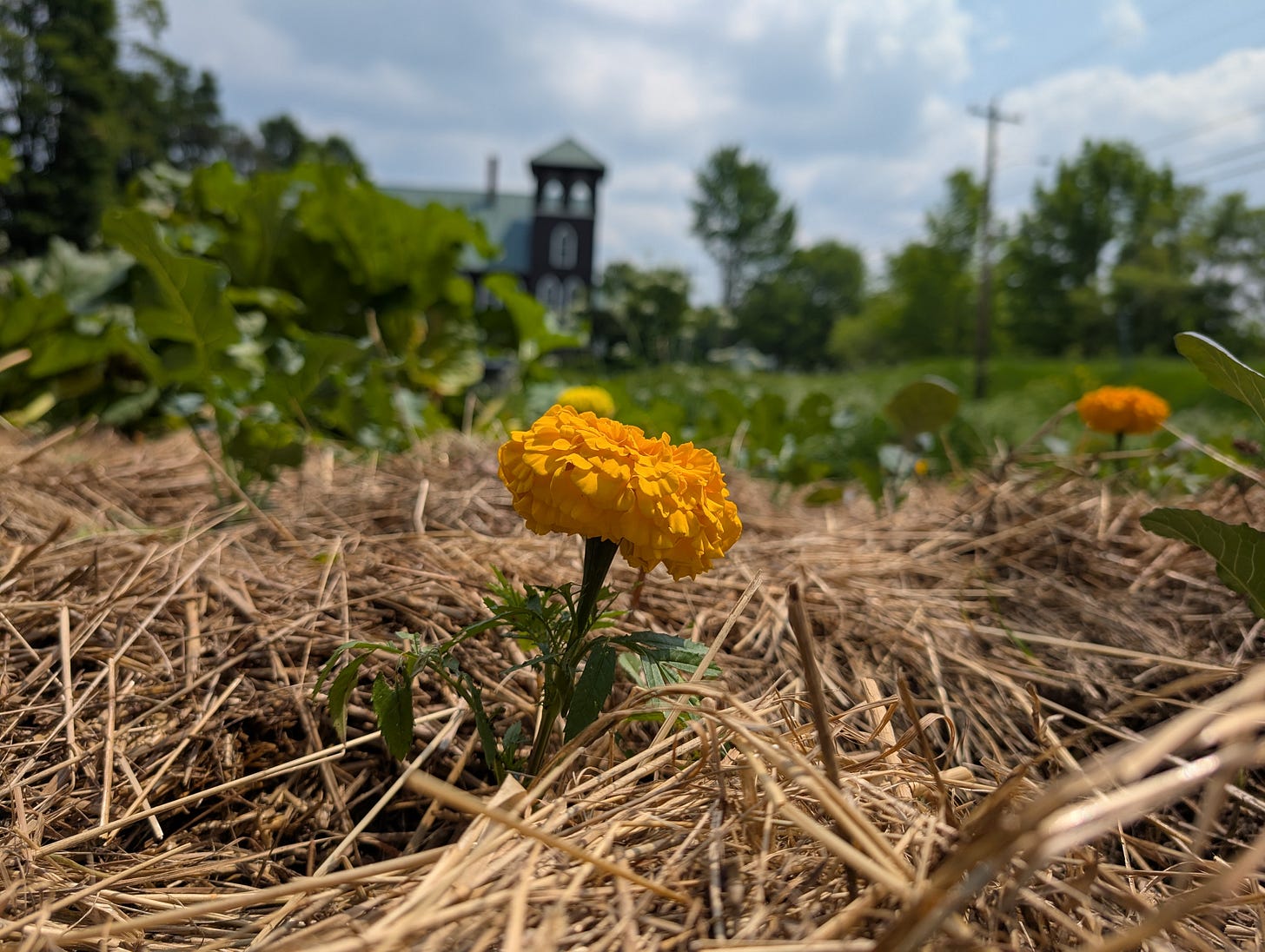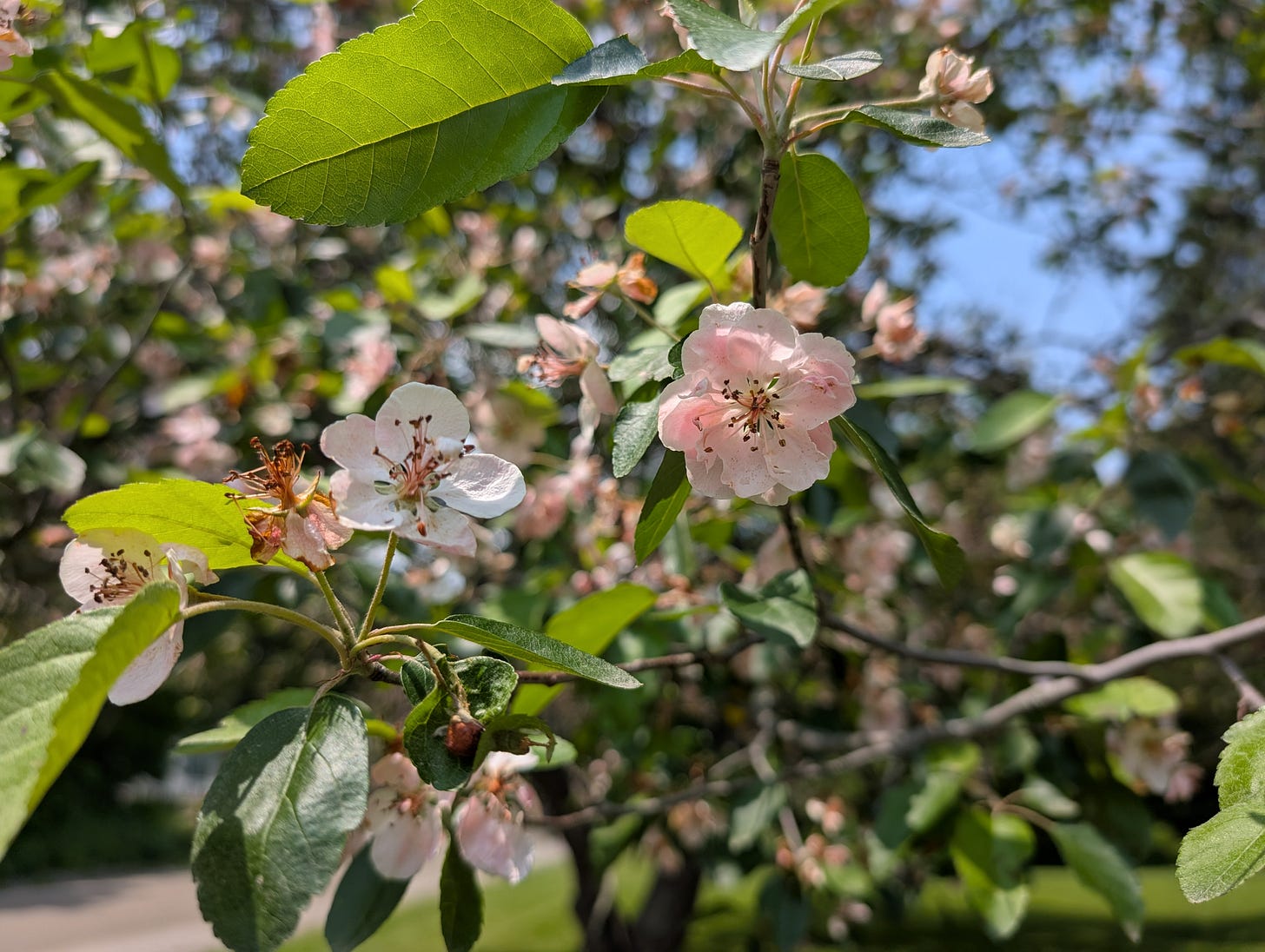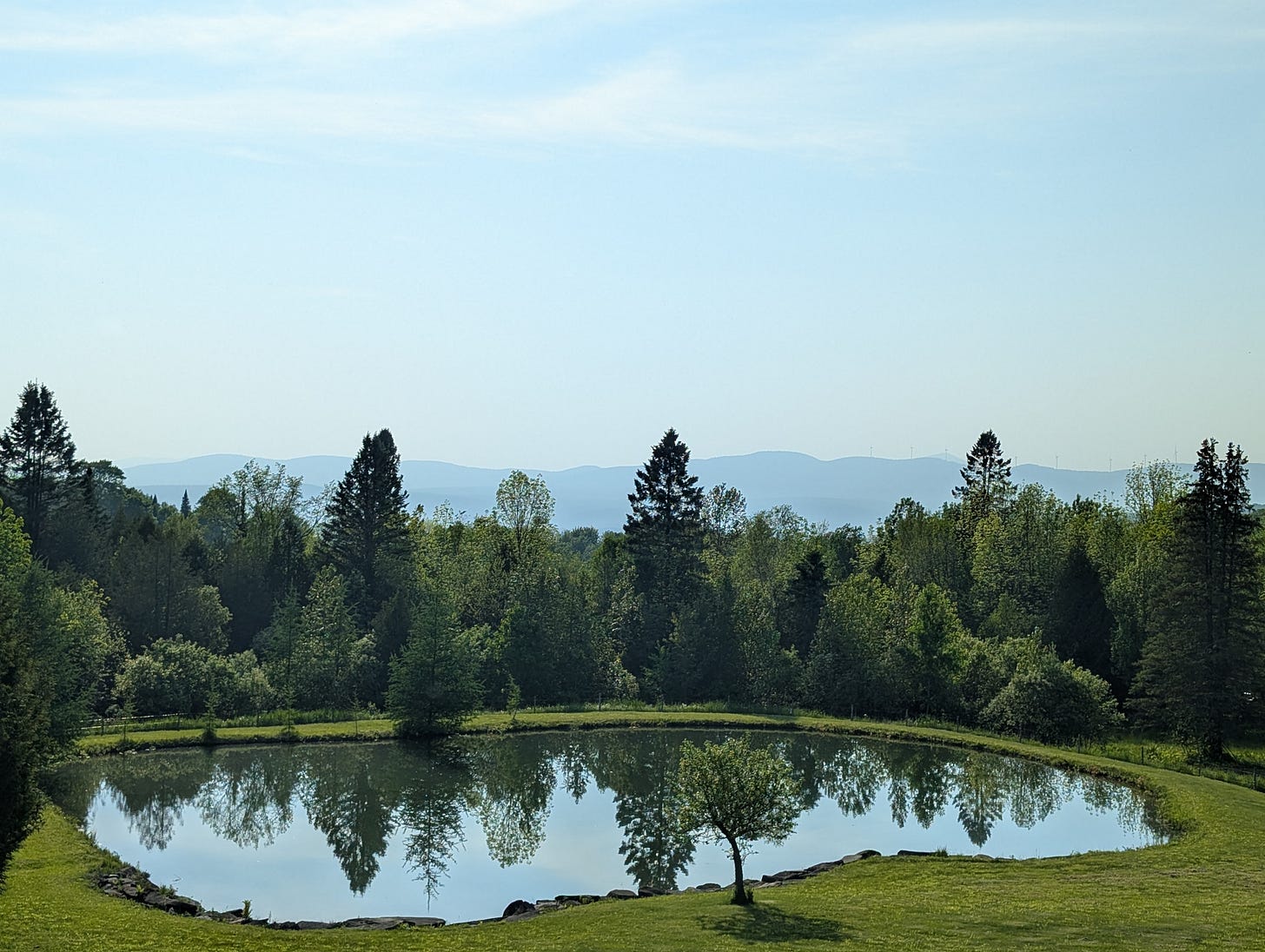Surprise Party
Pentecost and the Holy Spirit
When the day of Pentecost had come, they were all together in one place.
And suddenly from heaven there came a sound like the rush of a violent wind, and it filled the entire house where they were sitting. Divided tongues, as of fire, appeared among them, and a tongue rested on each of them. All of them were filled with the Holy Spirit and began to speak in other languages, as the Spirit gave them ability.
Now there were devout Jews from every people under heaven living in Jerusalem. And at this sound the crowd gathered and was bewildered, because each one heard them speaking in the native language of each.
Acts 2:1-6
For me, birthdays are a bit of a mixed bag. Some people go all out to celebrate theirs, and I love that for them. Growing up, I remember all the fun birthday parties my friends had, and my parents made sure I had some good ones too. But I really remember how, in our school’s morning announcements over the intercom, they would always read out whoever’s birthday it was that morning, calling them by name, “It's so-and-so's birthday today!" It felt special. And if it were one of my friends, sometimes you knew with a bit of excitement that there was a fun party planned that weekend.
But my birthday is in the summer. It always happened when school was out. So I never got that PA intercom announcement (and I swear, I’m not bitter at all). And while my parents did make sure I got some good parties, it was often harder to have big get-togethers when half of your friends were on vacation somewhere, and it wasn’t as easy to invite them without seeing them at school. Maybe it was also a little bit of the personalities of the men on my mom’s side rubbing off on me, too. My grandfather would have been mortified to ever make a big deal out of himself.
As I grew older, the parties I did have grew smaller. In college, we’d have a bar outing, and one time some coworkers surprised me, but the older I got, and the farther away from home I got, I just wanted to celebrate less and less. Eventually, birthdays were actually painful because they often felt lonelier than they should be. Maybe that’s what this Pentecost, celebrated as “the church’s birthday,” feels like to you—more lonely than it should be.
I remember one time in my twenties, I stumbled intoxicated into a Baskin-Robbins in Highland Park in Los Angeles. This was not the prettiest Baskin-Robbins. It was in a strip mall on a run-down street next to a somehow-still-in-business RadioShack, with old chairs and tables in pink, chipped paint. Their slogan was “31 flavors,” and the 32nd flavor was depression, the 33rd isolation. I walked in on my birthday because I felt like I ought to do something to “celebrate.” But it was not a party. I was all alone while I ate chocolate chip cookie dough, staring into my phone. Alone, that is, besides the one part-time employee who looked annoyed that I interrupted their peace and quiet. No, that was not a party.
What’s the one requirement for a party? Being together. And this is also what we need to be a church. In our account of Pentecost we read today, the Book of Acts emphasizes this point, almost strangely. “They were all together in one place.” Before we started using the word “church” in English, the Bible called us the ekklesia, “the gathering,” or “the assembly.” A group of people who love God together.
We might think that a requirement for Pentecost Sunday is forcing ourselves into joy, getting the party ready for the Holy Spirit. And I do want worship to sometimes feel like that for folks! But I also know it’s a hard time for many of us, and forcing ourselves to be cheerful is not a requirement for being a church, even in celebrating the church’s birthday. It’s being together. Not even necessarily in the same building, when that’s not possible; it’s being spiritually together.
In fact, when we’re in a really hard chapter of life, there's a special closeness we have with God that we can’t get when things are going well. Sometimes in pleasant times, our Christianity might feel empty, devoid of stakes, disconnected from reality. But in suffering, we actually get closer to God, who gets closer to us in suffering with us, and we get closer to the story of his people—his gathering.
So while Pentecost is sometimes thought of as a “party” Sunday, what about the pain that must have been underneath Pentecost? We can forget that Scripture has real people in it, and the story of Pentecost feels so astounding that it can be unreal to us: the Holy Spirit coming down and having these tongues of fire above their heads and everybody speaking different languages but understanding each other. It's beautiful and awesome, but probably unlike anything we've ever seen in church. We have had some great worship experiences in Craftsbury, but none like that.
What we don’t see in the text is how people might have been struggling going into that Pentecost day. Jesus was gone for seven weeks now, and many must have been confused. “Well, I’m pretty sure there was a resurrection, that was pretty awesome. But what now? That Jesus, he sure did some truly incredible things, defeated death and all, but…what about us? Are we orphaned? Are we alone?” I think of his followers who might have been in deep pain and grief, whose lives did not magically get better after Easter. Life had to go on. After Easter, you still have to do the dishes. They still had jobs. They still had disease, they still had hardship, and seven weeks is a long time in the ancient world for things to go wrong; somebody probably lost a relative, maybe even had a child die between the resurrection and Pentecost in those seven weeks. They were probably not remotely ready to be surprised.
And then God came into their lives and let them know that they were not alone. I have emphasized that in recent weeks, and it can’t be emphasized enough: we are not alone. We are not orphaned.
What about all the deeper pain underneath Pentecost, beyond the personal stories, but the pain that goes back all the way to humanity in the earliest chapters of our shared story? For when the Spirit descended on those gathered in Acts, it was going back all the way to the wounds of humanity that we saw in the Tower of Babel, scattered in languages so we couldn’t understand one another, now brought together in a way that maintained our diversity but in full communion. Pentecost shows the contrast between that Tower of Babel desire to fix ourselves, to elevate ourselves, to feed our egoic desire to make ourselves great, both in our individual egos and our collective egos, a perfect place for sin to scatter us and rip us apart, with no one to blame but ourselves. This is the story of human history over and over again, empires rising in self-glory and falling in pain. This is often the story of our personal human history over and over again—the empire of ourselves rising, then crashing.1
That is what the Holy Spirit’s work on Pentecost comes to heal: to bring it all together, to gather it all together, to have the lines of communication be restored, to have the things that divide us, unite us—including the things that might cause real pain. The Spirit came to tell us that you don’t have to build yourself up, because God will build you up.
The church’s birthday party was a true surprise party. I think all of the church’s true parties are surprise parties. We get so far gone in our despair and anguish and so distant from hope, even though God has authored the Last Page of the Book of Life and it has his love for you on it, we get so far gone it takes something truly out of the blue like dancing fire to get us to pay any attention to the surprises God is always trying to show us.
When things are hard, can you believe enough to be ready for a surprise?
But can we ever truly be ready for a surprise?
Maybe being ready for a surprise actually ruins the surprise, like seeing your coworker take the cake with your name on it through the side door, so then 10 minutes later when all your friends flick the lights on, you have to pretend, “Ah, didn’t see this coming!” So maybe if you don’t believe God is coming with a celebration for you anytime soon, that makes you even more ready for his surprises.
And the best surprises are often not in the form of a big party. Sometimes the best surprises are quiet, known only to you and God. When you are in the darkest moments of your life, you might be surprised to see the hidden aspects of God that you never would have seen if it weren’t for the darkness you’re in. In your story, there will be secret parts of his mercy nobody knows but you, that you didn’t know were even possible, sides of his love you didn’t know existed until you really, really needed it. Certain kinds of love can only be known when you’ve felt the depth of love’s absence.
So whether you are ready for God to throw you a surprise party or not, my hope is that you hear him whispering in the quiet moments, “Oh, beloved, I’m here. I’m with you. And I’m working.” Whether we are physically all together or not, there is nothing that can separate us from his love. Amen.
Hat-tip to At Home with the Lectionary for their Pentecost discussion.






